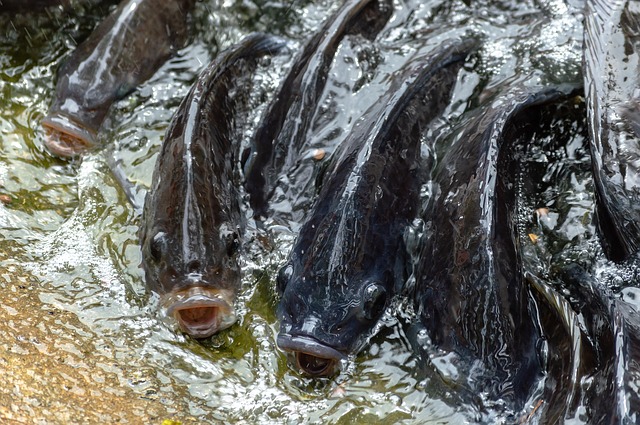April 24, 2019
The state of Hawaii is launching a new aquaculture accelerator and an associated investment fund. The goal of the project is to attract startups addressing challenges faced by the industry, including animal health and operation and water management.
The establishment of the accelerator and fund was a joint endeavor between the Natural Energy Laboratory of Hawaii Authority (NELHA), the Hawaii Strategic Development Corporation (HSDC), and the University of Hawaii’s UH Ventures, LLC (UHV), however, Irish aquaculture accelerator HATCH has been tapped to manage and oversee operations.
Launched in January 2018 by CEO Carsten Krome of Alimentos Ventures in Bergen, Norway, Hatch partnered with NCE Seafood Innovation Cluster and Bergen Teknologioverføring (BTO) to offer innovative early stage aquaculture startups support in the form of capital and business support.
Following a very successful initial program in Bergen, the accelerator moved to Cork, Ireland for its second cohort which began in September of last year through December 6.
“In Bergen, we had eight start-ups from seven countries, which went through 30 mentor sessions, met 40 investors from 17 different countries, and got investor-ready in 90 days, said program director Wayne Murphy. “Two of the companies came away with six-figure investments, and a very clear idea of where they were headed in the aquaculture world. All of the companies were delighted with the development experience, unparalleled international networking, and business and investment opportunities they gained.”
All told, HATCH made 16 investments throughout 2018, and saw two successful cohorts consisting of 14 worldwide aquaculture startups, which have gone on to raise more than €6 million (US$6.7 million) in follow-on funding.
For the Hawaii cohort, HATCH will manage between 10 to 14 participants that will take part in the next 15-week program at the Natural Energy Laboratory of Hawaii Authority in Kailua-Kona. The program is funded for the initial three years with funding provided by the Hawai‘i State Legislature and the U.S. Economic Development Administration, and is expected to foster three cohorts of 10-12 aquaculture startups per year.
Each chosen startup will receive €100,000 (US$111,600) of which half will be in cash, and the remainder will be in valued services. Each team will have access to, and engage with global leaders in the aquaculture sector who will help to develop their business plan, their strategies, and technologies.
“We do a lot around making these companies understand how to share their views and share their stories and get people excited about them, so that they can raise money, they can attract customers and they can give their business the best possible chance for success,” Murphy told West Hawaii Today.
“Many people have come together to make this initiative a reality,” said Gregory Barbour, executive director, NELHA. “We are thrilled by the positive feedback this initiative has generated and look forward to growing the aquaculture tech industry in Hawaii.”
Mind the Gap
Driven by macro-trends that include population growth, shifting wealth distribution, and changing dietary demands toward more protein content, investing in aquaculture is becoming a topic earmarked for investor discussions.
“Since 1960, global demand for seafood has increased 3.2 percent annually, outpacing the 1 percent annual growth in the world’s population over the same time period,” noted Philippe de Lapérouse, managing director of HighQuest Group, in the piece Technology Plays in Aquaculture published in the GAI Gazette.
Rising global populations and increasing wealth – particularly in emerging economies – along with diminishing wild fish numbers have put pressure on the aquaculture industry to fill the gap in supply in a sustainable manner – something that is a focus of the Hatch program.
Predictive modeling by The World Bank estimates that by 2030, 62 percent of food fish will be provided through aquaculture, and from 2030 onward, aquaculture will dominate supply in the industry, according to the report Fish to 2030, Prospects for Fisheries and Aquaculture.
From Hawaii to Singapore
From Bergen to Hawaii, and from Hawaii, HATCH plans to move its next cohort to Singapore.
“We decided to take Hatch to Singapore because of its close proximity to most large aquaculture markets, the presence of large aquaculture suppliers, and great access to Asia-focused venture capital,” said Georg Baunach, co-founder and director of HATCH.
-Lynda Kiernan

Let GAI News inform your engagement in the agriculture sector.
GAI News provides crucial and timely news and insight to help you stay ahead of critical agricultural trends through free delivery of two weekly newsletters, Ag Investing Weekly and AgTech Intel.




